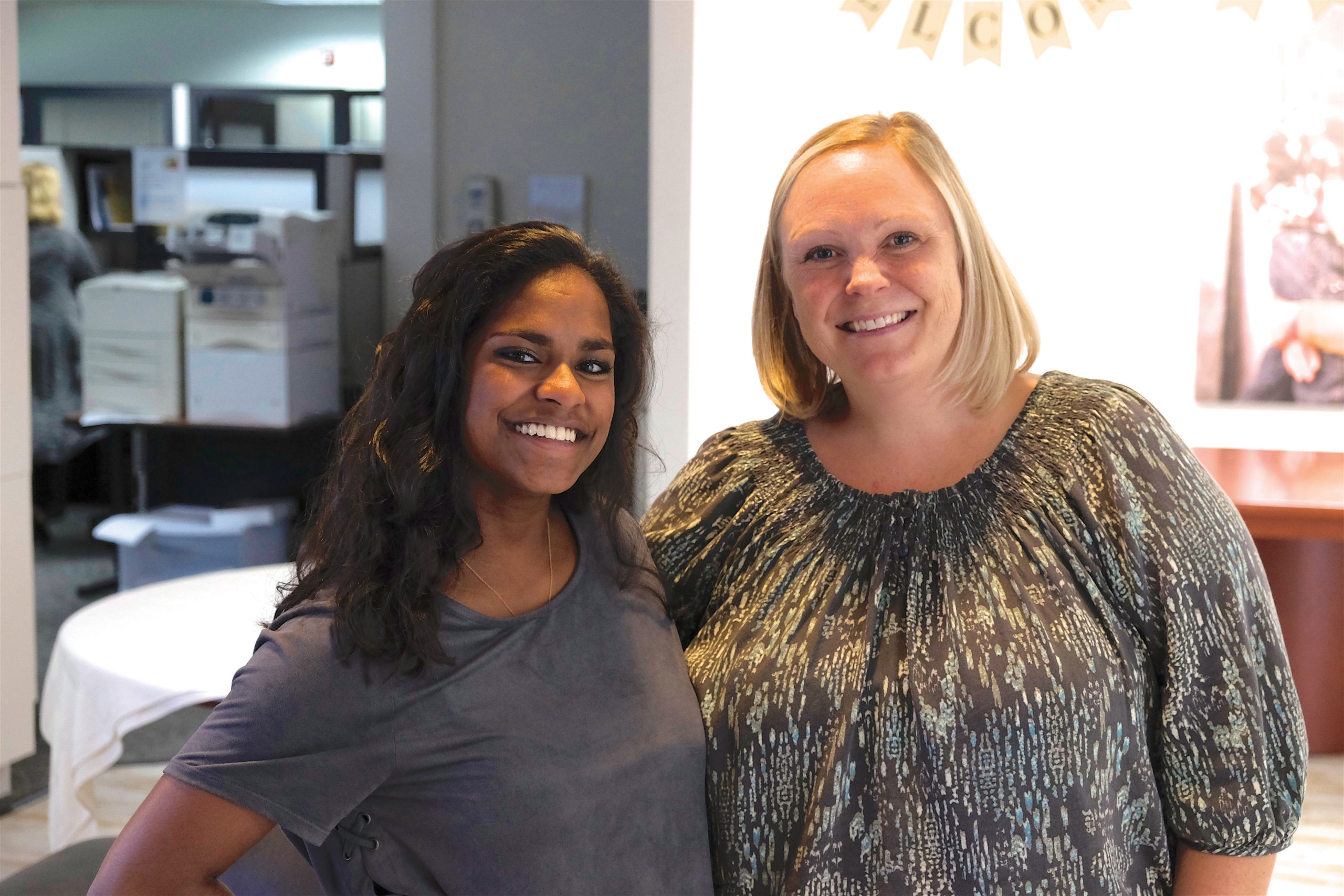Thirteen years ago, the “Boxing Day” tsunami off the coast of Thailand left unbelievable devastation in its wake — including in the life of one young man growing up without the protections of Thai citizenship.

On December 26, 2004, Ahman woke to blue skies in Ranong, Thailand. It was “a pleasant Sunday morning,” he says, but a day also muted by an enduring and troubling fact in Ahman’s life.
“I was a nobody,” he says.
The second of five boys, 13-year-old Ahman was one of an estimated 200,000 ‘invisible children’ who lived in Thailand but lacked Thai citizenship — a status inherited by his migrant parents. Although a 2005 law gave undocumented children like Ahman and his brothers permission to receive primary education, Ahman’s stateless status made him subject to ridicule, and kept him “in a shell,” he says. “I wasn’t confident when I attended school for fear of being made fun of because I didn’t have papers.”
Ahman dreamed big, though. He longed to receive an education beyond high school and wanted to be a teacher. But, as many do when facing scorn, Ahman began to hide — hide from school and from his potential. “I didn’t want to face it,” he says. And, slowly, Ahman began to see himself as much of Thai society saw him.
Unsophisticated. Inconsequential. Invisible, with no hope and no future.
But on that blue-sky morning in late December, something else was invisible, too.
The sea.
For a moment, the Andaman Sea, quickly and without notice, receded. Unaware of the imminent danger, beach-walkers ran towards the departing water, exploring the unearthed sea life that had suddenly found itself without protection. When the water reemerged, minutes later, it came as a 100-foot wave, overcoming many of those still on the beach and surging toward the unsuspecting locals and tourists working and shopping in the town above. Many of them would also be swept away by the massive swell.

In just moments, the 2004 “Boxing Day” tsunami — and preceding 9.1-earthquake off the coast of Sumatra, Indonesia — had left an estimated 250,000 people in 14 countries dead.
Ahman’s family survived, but many of their friends did not. Thousands of fishing boats were also destroyed, including the boats that Chate, Ahman’s father, worked on. “Our sole source of income was destroyed,” Ahman says. “We were desperate.” And because they were also undocumented, they were ineligible for government aid.
Learning of this displaced group’s difficulties, Holt International’s local partner, Holt Sahathai Foundation (HSF), started a rehabilitation program for the 18 undocumented families living in Ranong — first training the parents in child caring skills and proper hygiene, and providing medical care for the 106 malnourished children in the group. Monthly support from sponsors also helped the children start or continue school. HSF provided the men with a microloan to start a mussel farm, an income-generating project that the group mutually agreed on. And they helped the women, including Ahman’s mother, Limah, start a women-led Trust Savings Fund.
Seeing his “hidden potential” and desire to educate, HSF also invited Ahman to teach a Thai reading and writing class for the women. “Through this class,” he says, “the women — our mothers — grew confidence and were able to get jobs in the market.” Ahman also became the group’s secretary and led several activities for the district’s children — duties he says helped lessen his shyness and grow his confidence.
But Ahman was still undocumented, and he still feared bullying at school.
Ahman attended several counseling sessions through HSF, and finally, he agreed to attend high school, receiving sponsorship support to help him through. “My sponsors’ generosity made a big difference in my life,” Ahman says. “Because of their support, I always tried to do my best and work hard.”
Ahman graduated in 2009 with straight A’s, an accomplishment that would have made him eligible for many scholarships, if only he had Thai citizenship. Jintana Nontapouraya, the executive director of HSF, remembers how this last hurdle was too much for Ahman’s family. “Although they made tremendous financial progress,” she says, “Ahman’s family just couldn’t afford to send him to college.” But HSF was unwilling to let Ahman give up on his dreams. So they provided a loan to help him pursue a bachelor’s degree in education.
Ahman graduated from college in 2014, and passed a competitive exam to become a teacher.
The same year that Ahman graduated high school, the tsunami rehabilitation project came to completion. Ahman’s mother found a job as a cook, Chate continued with the mussel farm, and Ahman’s younger brothers continued their education with HSF and sponsorship support. Every family in the group had become self-reliant and stable.
And after proving that his mother was of Thai descent, Ahman finally received Thai citizenship. “I finally felt like somebody,” he says. “No words can explain enough how wonderful and how delightful that day was.” Soon after, Ahman’s family received their citizenship papers, too.
While he admits to being proud, Ahman says he doesn’t get too caught up in all that he has accomplished. “What is really important to me is being able to help make a big change in my students’ lives, the same way that I got that opportunity,” he says. “HSF has been an invaluable support system for my parents, my brothers and myself as well as my community.”
Ahman currently teaches at a school in Ranong, while simultaneously working towards a master’s degree in educational administration. He says that many students in his class are undocumented, like he once was, and he hopes he can be an inspiration to them.
“If I hadn’t received an education, I wouldn’t be able to reach my goals and help others reach their goals,” Ahman says. “HSF taught me to become brave enough to dream, and now I get to help others be brave enough to do the same.”
Ashli Keyser • Staff Writer






